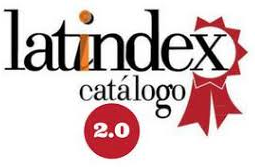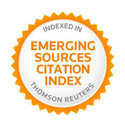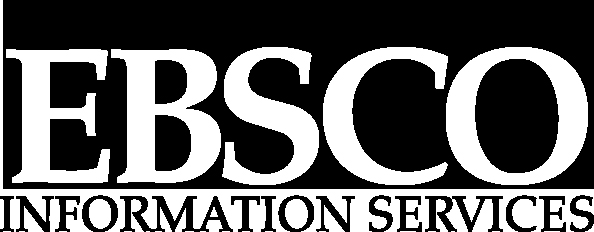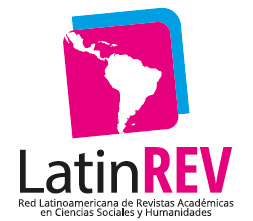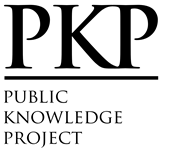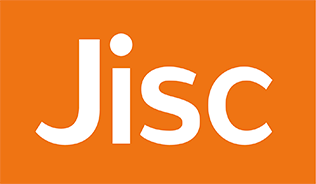O intrincado relacionamento entre o negócio da mídia e o desenvolvimento económico
Resumo
As teorias do crescimento são um dos pilares da teoria económica e, por conseguinte, se remontam aos inicios do campo. Embora tenham se desenvolvido diversas abordagens para explicar o crescimento económico, o rol da mídia recém começou a receber atenção académica nos últimos vinte anos. Nosso trabalho vai tentar esclarecer o intrincado relacionamento entre o negócio da mídia ( e seus subsegmentos específicos) e o desenvolvimento económico geral (mais as variáveis que possam intervir). A partir de dados proporcionados por uma consultora internacional, indicadores econômicos do Banco Mundial e outras fontes que esquematizam os “sistemas da mídia” nacional, será exibida a diversidade dos 30 países mais destacados —midiaticamente falando— e serão traçadas as correlações entre eles. Além disso, serão analisadas séries temporais e possíveis relaciones causais segundo dados anuais do período 2001-2010. As análises mostram uma forte correlação entre as rendas anuais das indústrias mediáticas e o PBI. As correlações deslocadas por intervalos de tempo também indicam efeitos anuais. O crescimento no longo prazo da mídia, seu rol na geração de valor económico, as taxas de crescimento económico compostas e o estado geral de desenvolvimento estão estreitamente vinculados entre si e ligados com certas variáveis dos sistemas da mídia como a liberdade de prensa. De qualquer maneira, apesar das taxas de crescimento das indústrias da mídia geralmente dependem do crescimento do PBI, os países menos desenvolvidos disfrutam níveis de crescimento mediático mais alto que os que poderíamos esperar a partir do PBI. Finalmente, o crescimento do mercado da mídia parece estimular o desenvolvimento económico
geral, o que indica uma coevolução.
Downloads
Referências
Alesina, A. & La Ferrara, E. (2005). Ethnic diversity and economic performance. Journal of Economic Literature, 43, p. 762–800.
Anam, M. (2002). The media and development in Bangladesh (p. 267–274). In: World Bank (ed.). The right to tell: the role of mass media in economic development. Herndon, VA: World Bank Publications.
Becker, L. B.; Vlad, T. & Nusser, N (2007). An evaluation of press freedom indicators. International Communication Gazette, 69, p. 5. Retrieved from: http://gaz.sagepub.com/content/69/1/5 (accessed 30.10.2014)
Besley, T. & Burgess, R. (2001). Political agency, government responsiveness, and the role of media. European Economic Review, 45, p. 639-640.
Besley, T.; Burgess, R. & Prat, A. (2002). Mass media and political accountability (p. 45-60). In: World Bank (ed.). The right to tell: the role of mass media in economic development. Herndon, VA: World Bank Publications.
Blum, R. (2005). Bausteine zu einer Theorie der Mediensysteme. In: Medienwissenschaften Schweiz, 2, p. 5-11.
Commission on the Measurement of Economic Performance and Social Progress (2009). Report by the Commission on the Measurement of Economic Performance and Social Progress. Retrieved from: http://www.stiglitz-sen-fitoussi.fr/documents/rapport_anglais.pdf (accessed 30.01.2014)
Coyne, C. J. & Leeson, P. T. (2004). Read all about it! Understanding the role of media in economic development. Kyklos, 57 (1), p. 21-44.
Coyne, C. J. & Leeson, P. T. (2009). Media, development, and institutional change. Cheltenham: Edward Elgar.
Djankov, S. et al. (2002). Media: ownership and prosperity (p. 141-166). In: World Bank (ed.). The right to tell: the role of mass media in economic development. Herndon, VA: World Bank Publications.
Djankov, S. et al. (2003). Who owns the media? Journal of Law and Economics, 46 (2), p. 341.
Dunning, J. (1993). Multinational enterprises and the global economy. London: Addison Wesley.
Dyck, A. & Zingales, L. (2002). The corporate governance role of the media (p. 107-140). In: World Bank (ed.): The right to tell: the role of mass media in economic development. Herndon, VA: World Bank Publications.
Easterly, W. (2001). The elusive quest for growth. Massachusetts: MIT Press.
European Commission (2009). GDP and beyond: measuring progress in a changing world. Communication from the Commission to the Council and the European Parliament. COM (2009) 433 final. Brussels: European Commission. Retrieved from: http://www.beyond-gdp.eu/EUroadmap.html (accessed30.10.2014)
European Communities & OECD (2006). Eurostat-OECD methodological manual on purchasing power parities. Paris: OECD. Retrieved from: http://www.oecd.org/dataoecd/59/10/37984252.pdf (accessed 30.10.2014)
Florida, R. (2002). The rise of the creative class: and how it’s transforming work, leisure, community and everyday life. New York: Basic Books.
Freedom House (2013). Freedom of the press ratings. Retrieved from: http://www.freedomhouse.org/ report-types/freedom-press All years from 2001 to 2010 available (accessed 03.10.2014)
Gallup, J. L.; Sachs, J. & Mellinger, A. (1998). Geography and economic development, presented at the Annual Bank Conference on Development Economics, World Bank. Retrieved from: http://www. cid.harvard.edu/cidglobal/economic.htm (accessed 03.10.2014)
Gould, D. M. & Gruben, W. C. (1996). The role of intellectual property rights in economic growth. Journal of Development Economics, 48, p. 323-350.
Gross, P. (1996). Mass media in revolution and national development: the Romanian laboratory. Iowa: Iowa State University Press.
Hallin, D. C. & Mancini, P. (2005). Comparing media systems (p. 215-233). In: Curren, J. & Gurevitch, M. (ed.). Mass media and society. London: Hodder Arnold.
Hawksworth, J.; Jones, N. C. & Ussher, K. (2011). Good growth: a Demos and PwC report on economic well-being. London: Demos. Retrieved from: http://www.pwc.co.uk/government-public-sector/publications/good-growth-index-how-gov-can-kick-start.jhtml (accessed 30.10.2014)
Islam, R. (2002). Into the looking glass: what media tell and why: an overview (p. 1-25). In: World Bank (ed.). The right to tell: the role of mass media in economic development. Herndon, VA: World Bank Publications.
Kilman, L. (2006). The role of the press in sustainable economic development. a presentation paper for the UNESCO World Press Freedom Day conference Colombo, Sri Lanka, 1-4 May, 2006. Retrieved from: http://www.unesco.org/new/fileadmin/MULTIMEDIA/HQ/CI/WPFD2009/pdf/ wpfd2006_WAN+Kilman.doc (accessed 24.10.2014)
Knack, S. & Keefer, P. (1995). Institutions and economic performance: cross-country test using alternative institutional measures. Economics and Politics, 7, p. 207–227.
Kolo, C. & Müller, R. (2012). Economic value creation and media industries: a quantitative comparative study across media systems and national economies (p. 47-64). In: Kolo, C.; Döbler, T. & Rademacher, L (ed.). Wertschöpfung durch Medien im Wandel. Baden- Baden: Nomos.
Lal, D. (1998). Unintended consequences: the impact of factor endowments, culture, and politics on longrun economic performance. Massachusetts: MIT Press.
Lambino II, A.; Tebay, A. & Buzby, S. (2006). A monitoring and evaluation toolkit for media development: what do available indicators and integrative approaches have to offer? (p. 81-88). In: Media matters: perspectives on advancing media and development from the Global Forum for Media Development. London: Internews Europe; Brussels: Global Forum for Media Development.
Lavine, J. M. & Wackman, D. B. (1988). Managing media organisations: effective leadership of the media. London: Longman.
Lent, J. A. (ed.) (1980). Case studies of mass media in the Third World. Virginia: Department of Anthropology, College of William and Mary.
Lewis, W. A. (1955). The theory of economic growth. London: Unwin Hyman.
Mansell, R. & Wehn, U. (1998). Knowledge societies: information technology for sustainable development. Oxford: Oxford University Press.
McAnany, E. G. (1980). Communications in the rural Third World: the role of information in development. New York: Praeger.
Melody, W. H. (1999). Human capital in information economies. New Media & Society, 1 (1), p. 39-47.
Norris, P. & Zinnbauer, D. (2002). Giving voice to the voiceless: good governance, human development & mass communications. New York: UNDP Human Development Report Office. Retrieved from: http://hdr.undp.org/sites/default/files/norris-zinnbauer_2002.pdf (accessed 30.10.2014)
O’Neil, P. H. (ed.) (1997). Post-Communism and the media in Eastern Europe. London: Frank Cass.
Oetzel, J. M.; Bettis, R. A. & Zenner, M. (2001). Country risk measures: how risky are they? Journal of World Business, 36, p. 128-145.
Owen, B. M. (2002). Media as industry: economic foundations of mass communications (p. 167-186).
In: World Bank (ed.). The right to tell: the role of mass media in economic development. Herndon, VA: World Bank Publications.
Paletz, D. L.; Jakubowicz, K. & Novosel, P. (ed.) (1995). Glasnost and after: media and change in Central and Eastern Europe. New Jersey: Hampton Press.
Potts, J. (2009). Do developing economies require creative industries? Some old theory about new China. Chinese Journal of Communication, 2 (1), p. 92-108.
PwC (2013). Global entertainment and media outlook 2013-2017. 14th edition [earlier editions with data from 2001 on analogous; compiled for this study by courtesy of PWC]. New York: PwC. Retrieved from: http://www.pwc.com/gx/en/global-entertainment-media-outlook
Reporters sans Frontières (2013). World press freedom index. Retrieved from: http://en.rsf.org/pressfreedom-index-2013,1054.html All years from 2001 to 2010 available (accessed 20.10.2014)
Sen, A. (1984). Poverty and famines. Oxford: Oxford University Press.
Siebert, F. S.; Peterson, T. & Schramm, W. (1956 [1963]). Four theories of the press: the authoritarian, libertarian, social responsibility and Soviet communist concepts of what the press should be and do. Illinois: University of Illinois Press.
Simmons, H. (1948). Economic policy of a free society. Chicago: University of Chicago Press.
Smith, A. (1776 [1991]). The wealth of nations. New York: Prometheus Books.
Spitzer, R. J. (ed.) (1993). Media and public policy. New York: Praeger.
Stigler, G. J. (1961). The economics of information. Journal of Political Economy, 69, p. 213 225.
Stiglitz, J. (2002). Transparency in government (p. 27-44). In: World Bank (ed.). The right to tell: the role of mass media in economic development. Herndon, VA: World Bank Publications.
Thomaß, B. (2007). Mediensysteme im internationalen Vergleich. Konstanz: UTB.
UNDP (2013). International human development indicators. Retrieved from: http://hdr.undp.org/en/ statistics/ All years from 2001 to 2010 available (accessed 20.10. 2014)
UNESCO (2008). Media development indicators: a framework for assessing media development.
Reference number: CI/COM/2008/PI/3 Paris: United Nations Educational, Scientific and Cultural Organization, Communication and Information Sector.
van der Wurff, R.; Bakker, P. & Picard, R. G. (2008). Economic growth and advertising expenditures in different media in different countries. Journal of Media Economics, 21, p. 28-52.
van Kranenburg, H. & Hogenbirk, A. (2005). Multimedia, entertainment, and business software copyright piracy: a cross-national study. Journal of Media Economics, 18 (2), p. 109-129.
Whitehouse, M. (2006). Measuring change in media systems: the media sustainability index (p. 76-80). In: Media matters: perspectives on advancing media and development from the Global Forum for Media Development. London: Internews Europe; Brussels: Global Forum for Media Development.
Wiio, O. A. (1983). The mass media role in the Western world (p. 85-94). In: Martin, L. J. & Chaudhary, A. G. (ed.). Comparative mass media systems. White Plains: Longman.
World Bank (ed.) (2013). World Bank indicators. Retrieved from: http://data.worldbank.org/indicator All years from 2001 to 2010 available (accessed 02.10.2014)
World Bank (ed.) (2002a). The right to tell: the role of mass media in economic development. Herndon, VA: World Bank Publications. World Bank (ed.) (2002b). The World Development report 2002. Herndon, VA: World Bank Publications. Retrieved from: https://openknowledge.worldbank.org/handle/10986/5984 (accessed 10.10.2014).
Copyright (c) 2015 Castulus Kolo

This work is licensed under a Creative Commons Attribution-NonCommercial 4.0 International License.
Os autores detêm os direitos autorais e garantem à revista o direito de ser a primeira publicação do trabalho. Caso uma tradução do artigo já publicado na Austral Comunicación possa ser publicada em outra revista, solicita-se registrar a publicação original na versão traduzida.
A licença utilizada é CC BY-NC-SA, que permite compartilhar (copiar e redistribuir o material em qualquer meio e formato) e adaptar (remixar, transformar e construir sobre o material) nos seguintes termos: atribuição (reconhecer a autoria) e não comercial (o material não pode ser usado para fins comerciais). Atualização: 1 de fevereiro de 2022.
A Austral Comunicación permite ao (s) autor (es) reter os direitos de publicação sem restrições.








